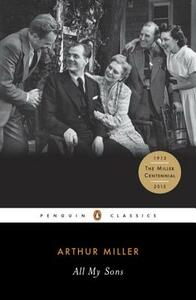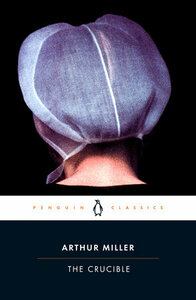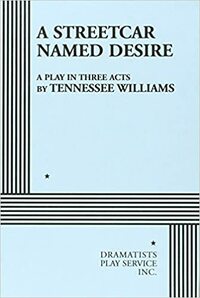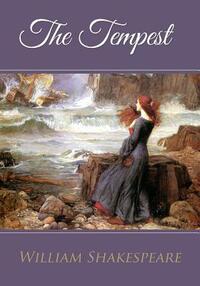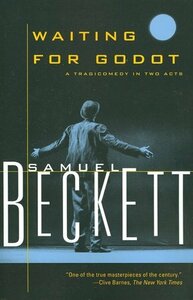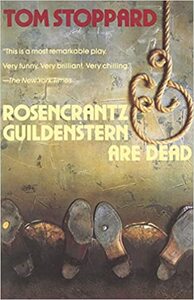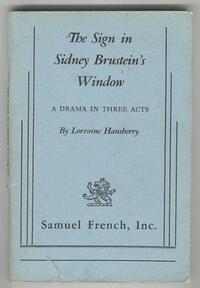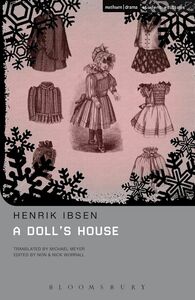Take a photo of a barcode or cover
ejreadswords's Reviews (100)
challenging
dark
emotional
funny
reflective
sad
tense
medium-paced
“What I’ve realized, Kostya, is that, with us, whether we’re writers or actors, what really counts is not dreaming about fame and glory… but stamina: knowing how to keep going despite everything, and having faith in yourself—I’ve got faith in myself now and that’s helped the pain, and when I think to myself, ‘You’re on the stage!’ then I’m not afraid of anything life can do to me.”
I’ve now read the four essential Chekhov plays, and, in a way, I’ve “read” this one before with Aaron Posner’s Stupid Fucking Bird (a sort-of adaptation), which will forever have a place in my heart as the play that I used to audition for Stella Adler, kickstarting this new phase of my life. But as I was reading The Seagull, specifically this Tom Stoppard version of the play, I kept thinking to myself, “man, this is THE Chekhov play, isn’t it?”
“You know, I’ve lived a pick-and-choose sort of life, plenty of variety, I’m not complaining, but let me tell you, if I’d ever experienced that transcendent feeling artists get in the moment of inspiration, then I believe I would have had nothing but contempt for my physical life and everything that goes with it and I’d have left the earth behind me and soared away into the skies.”
Maybe it’s where I find myself in my life, but the musings and dialogue of this play, and its characters… I love it all so much. There’s a caustic brutality that all these characters inadvertently inflict on one another, and it all comes from art, love, or the lack of (good) art and the absence of love. These characters ‘suffer,’ but it’s technically not the greatest suffering imaginable — just broken hearts, unfulfilled dreams, and cuckolding right in front of your eyes.
“Loving without hope—waiting years on end for something, you don’t know what… Better off married and forget about love, I’ll have new troubles to blot out the old ones—and anyway, anything for a change. Shall we have another [drink]?”
It’s a comedy — or at least this was Chekhov’s original intention. As Stanislavski and other directors and ensembles tackled the piece over the years (after it was originally booed at its first performance in Russia), the play has taken on another life and identity of its own, and it’s viewed as tragic, dramatic, with such a sadboi central performance in Konstantin.
“Now promise me there’ll be no more (pulling an imaginary trigger) chk-chk! when I’m gone.”
It proves it comes down to performance and interpretation, because yes, this play is SO melodramatic. Characters’ choices truly are justifiable, but sometimes you just need to slap them across the face to knock some sense into them. But someone needs to slap ME across the face sometimes, too; I get the struggle of all of these characters. Their musings are beautiful, and I think Tom Stoppard’s version of the text captures sentiments so tenderly that I found myself nodding along with and empathizing with on every page.
“Hm… here you are talking about fame and fortune and some interesting, brilliant life I’m supposed to be having, but I’m afraid these sweet thoughts mean no more to me than sweet cakes, which I never eat.”
Gosh, that Shakespeare in Central Park creative team? I didn’t realize that THIS version I picked out at the Drama Book Shop was the version that was directed by Mike Nichols, with Philip Seymour Hoffman (!) as Konstantin, Meryl Streep as Arkadina, Natalie Portman as Nina, Christopher Walken as Sorin, Kevin Kline as Trigorin… the entire cast is divine, and it made reading this play a little easier, just imagining in my head each of them performing.
Konstantin is just a little sadboi and I love him so much. I just know I can play Konstantin or Con in SFB one day; frankly, I possess the energy and can be convincing as a pouty, woe-is-me, pathetic creative. But I love all of these characters so much; poor Konstantin, poor Masha, poor Nina, poor Arkadina, poor Dorn… poor everybody.
I’ve now read the four essential Chekhov plays, and, in a way, I’ve “read” this one before with Aaron Posner’s Stupid Fucking Bird (a sort-of adaptation), which will forever have a place in my heart as the play that I used to audition for Stella Adler, kickstarting this new phase of my life. But as I was reading The Seagull, specifically this Tom Stoppard version of the play, I kept thinking to myself, “man, this is THE Chekhov play, isn’t it?”
“You know, I’ve lived a pick-and-choose sort of life, plenty of variety, I’m not complaining, but let me tell you, if I’d ever experienced that transcendent feeling artists get in the moment of inspiration, then I believe I would have had nothing but contempt for my physical life and everything that goes with it and I’d have left the earth behind me and soared away into the skies.”
Maybe it’s where I find myself in my life, but the musings and dialogue of this play, and its characters… I love it all so much. There’s a caustic brutality that all these characters inadvertently inflict on one another, and it all comes from art, love, or the lack of (good) art and the absence of love. These characters ‘suffer,’ but it’s technically not the greatest suffering imaginable — just broken hearts, unfulfilled dreams, and cuckolding right in front of your eyes.
“Loving without hope—waiting years on end for something, you don’t know what… Better off married and forget about love, I’ll have new troubles to blot out the old ones—and anyway, anything for a change. Shall we have another [drink]?”
It’s a comedy — or at least this was Chekhov’s original intention. As Stanislavski and other directors and ensembles tackled the piece over the years (after it was originally booed at its first performance in Russia), the play has taken on another life and identity of its own, and it’s viewed as tragic, dramatic, with such a sadboi central performance in Konstantin.
“Now promise me there’ll be no more (pulling an imaginary trigger) chk-chk! when I’m gone.”
It proves it comes down to performance and interpretation, because yes, this play is SO melodramatic. Characters’ choices truly are justifiable, but sometimes you just need to slap them across the face to knock some sense into them. But someone needs to slap ME across the face sometimes, too; I get the struggle of all of these characters. Their musings are beautiful, and I think Tom Stoppard’s version of the text captures sentiments so tenderly that I found myself nodding along with and empathizing with on every page.
“Hm… here you are talking about fame and fortune and some interesting, brilliant life I’m supposed to be having, but I’m afraid these sweet thoughts mean no more to me than sweet cakes, which I never eat.”
Gosh, that Shakespeare in Central Park creative team? I didn’t realize that THIS version I picked out at the Drama Book Shop was the version that was directed by Mike Nichols, with Philip Seymour Hoffman (!) as Konstantin, Meryl Streep as Arkadina, Natalie Portman as Nina, Christopher Walken as Sorin, Kevin Kline as Trigorin… the entire cast is divine, and it made reading this play a little easier, just imagining in my head each of them performing.
Konstantin is just a little sadboi and I love him so much. I just know I can play Konstantin or Con in SFB one day; frankly, I possess the energy and can be convincing as a pouty, woe-is-me, pathetic creative. But I love all of these characters so much; poor Konstantin, poor Masha, poor Nina, poor Arkadina, poor Dorn… poor everybody.
dark
emotional
funny
mysterious
reflective
sad
tense
medium-paced
Plot or Character Driven:
A mix
Strong character development:
Yes
Loveable characters:
Complicated
Diverse cast of characters:
No
Flaws of characters a main focus:
Yes
“I’m his father and he’s my son, and if there’s something bigger than that I’ll put a bullet in my head!”
😭😭😭 I started 2025 with an absolute masterpiece, but goodness, is this one so devastating. What a brilliantly-layered story. Act Two is marvelous, and Act Three’s final reveal, the final truth, and the conclusion… lord have mercy.
“Because certain things have to be, and certain things can never be. Like the sun has to rise, it has to be.”
As I continue building my theatrical foundation, I say yet again, “boy, a lot of these plays are about the same thing.” But considering that art is always in response to what is going on in the world, given this was written in the 1940s (and a lot of core, fundamentally American texts are results of the war), it’s no surprise that a lot of texts are about themes such as complicity, the “American Dream,” and the delusions that we tell ourselves to convince ourselves that the Dream is not dead, that there is something great to still look forward to.
Compared to other essential texts, like Miller’s own Death of a Salesman; O’Neill’s Long Day’s Journey Into Night, The Iceman Cometh; Shepard’s Buried Child, amongst so many others (and I’m just riffing on what I’ve read), this one, for me at least, best explains the generational gap of complicity, accountability, and the limits of what we’d do, what morals we’d compromise, for the betterment of our children, for the idea of leaving behind a good legacy to be proud of. Having ownership of the narrative.
I will exclude in recent theater and memory The Hills of California, because that has the unfair advantage of me having WATCHED it and HEARING it. But wow, that one is so beautifully profound concerning what our parents would do (or not do) for their children’s prosperity. I’m beside myself, this entry is about All My Sons.
I love these characters so much. Clearly defined, with rich histories embedded — and these histories continually haunt. Couldn’t help but think I’d love to play Chris or George, but any of the male characters are justified and representative of the makeup of our American society today.
Love love love love. And I finished reading this (read about 80% of it today) after watching the new film adaptation of The Count of Monte Cristo. And I couldn’t help but think that All My Sons and TCoMC share a lot of themes, but focused on different characters; where TCoMC focuses on the innocent victim and his retaliation, All My Sons focuses on the guilty, and the willful ignorance of living with the shame, and the ensuing egg on the face when the jig is up.
Heartbreaking. Beautiful. Wow.
😭😭😭 I started 2025 with an absolute masterpiece, but goodness, is this one so devastating. What a brilliantly-layered story. Act Two is marvelous, and Act Three’s final reveal, the final truth, and the conclusion… lord have mercy.
“Because certain things have to be, and certain things can never be. Like the sun has to rise, it has to be.”
As I continue building my theatrical foundation, I say yet again, “boy, a lot of these plays are about the same thing.” But considering that art is always in response to what is going on in the world, given this was written in the 1940s (and a lot of core, fundamentally American texts are results of the war), it’s no surprise that a lot of texts are about themes such as complicity, the “American Dream,” and the delusions that we tell ourselves to convince ourselves that the Dream is not dead, that there is something great to still look forward to.
Compared to other essential texts, like Miller’s own Death of a Salesman; O’Neill’s Long Day’s Journey Into Night, The Iceman Cometh; Shepard’s Buried Child, amongst so many others (and I’m just riffing on what I’ve read), this one, for me at least, best explains the generational gap of complicity, accountability, and the limits of what we’d do, what morals we’d compromise, for the betterment of our children, for the idea of leaving behind a good legacy to be proud of. Having ownership of the narrative.
I will exclude in recent theater and memory The Hills of California, because that has the unfair advantage of me having WATCHED it and HEARING it. But wow, that one is so beautifully profound concerning what our parents would do (or not do) for their children’s prosperity. I’m beside myself, this entry is about All My Sons.
I love these characters so much. Clearly defined, with rich histories embedded — and these histories continually haunt. Couldn’t help but think I’d love to play Chris or George, but any of the male characters are justified and representative of the makeup of our American society today.
Love love love love. And I finished reading this (read about 80% of it today) after watching the new film adaptation of The Count of Monte Cristo. And I couldn’t help but think that All My Sons and TCoMC share a lot of themes, but focused on different characters; where TCoMC focuses on the innocent victim and his retaliation, All My Sons focuses on the guilty, and the willful ignorance of living with the shame, and the ensuing egg on the face when the jig is up.
Heartbreaking. Beautiful. Wow.
adventurous
dark
emotional
mysterious
reflective
sad
tense
medium-paced
Plot or Character Driven:
Character
Strong character development:
Yes
Loveable characters:
Complicated
Diverse cast of characters:
No
Flaws of characters a main focus:
Yes
“Until an hour before the Devil fell, God thought him beautiful in Heaven.”
Great characters, and a fable in a sense that is “always relevant.” Our President-elect loves to use the term “witch hunt,” and he should look in the mirror and wonder why he’s constantly being accused, blamed, etc. for the transgressions he’s made. Oy vey.
“Because it is my name! Because I cannot have another in my life! Because I lie and sign myself to lies! Because I am not worth the dust on the feet of them that hang! How may I live without my name? I have given you my soul; leave me my name!”
Reading the play with classmates and popcorning roles was a lot of fun as we prepare to work on the play in our Technique class this upcoming semester (and we each had a couple beverages of liquid courage in us, so this made it a bit more fun, hehe). At the time I’m writing this, we’re just halfway through reading it, but meeting up again next week to finish the play. Some delicious dialogue that we get to say! That’s part of the beautiful immersion of this play.
Earlier in the day I listened to the L.A. Theatre Works production of The Crucible, and I loved it. Really was exciting to listen to (I wish I was able to watch it, but this was still really cool). Like a campfire story! Helped inspire me to make choices when I was reciting some passages from The Crucible with my friends.
Great characters, and a fable in a sense that is “always relevant.” Our President-elect loves to use the term “witch hunt,” and he should look in the mirror and wonder why he’s constantly being accused, blamed, etc. for the transgressions he’s made. Oy vey.
“Because it is my name! Because I cannot have another in my life! Because I lie and sign myself to lies! Because I am not worth the dust on the feet of them that hang! How may I live without my name? I have given you my soul; leave me my name!”
Reading the play with classmates and popcorning roles was a lot of fun as we prepare to work on the play in our Technique class this upcoming semester (and we each had a couple beverages of liquid courage in us, so this made it a bit more fun, hehe). At the time I’m writing this, we’re just halfway through reading it, but meeting up again next week to finish the play. Some delicious dialogue that we get to say! That’s part of the beautiful immersion of this play.
Earlier in the day I listened to the L.A. Theatre Works production of The Crucible, and I loved it. Really was exciting to listen to (I wish I was able to watch it, but this was still really cool). Like a campfire story! Helped inspire me to make choices when I was reciting some passages from The Crucible with my friends.
adventurous
dark
emotional
funny
mysterious
reflective
sad
tense
medium-paced
Plot or Character Driven:
Character
Strong character development:
Yes
Loveable characters:
Yes
Diverse cast of characters:
No
Flaws of characters a main focus:
Yes
“Sorrow makes for sincerity, I think.”
“It sure brings it out in people.”
“The little there is belongs to people who have experienced some sorrow.”
Revisited this play yesterday at the Drama Book Shop because I was going to watch Kowalski, a new play about the tango between Marlon Brando and Tennessee Williams ahead of the production of A Streetcar Named Desire — in which Brando is supposed to meet Williams to audition for Stanley Kowalski. And since I’m writing this Goodreads review after, I can say with full confidence that I loved Kowalski!
“I was—sort of—thrilled by it.”
And I’ll be seeing Paul Mescal prowling about in March with the new transfer of A Streetcar Named Desire — very excited for that (and for Patsy Ferran!).
“I don’t want realism. I want magic! [Mitch laughs] Yes, yes, magic! I try to give that to people. I misrepresent things to them. I don’t tell truth, I tell what OUGHT to be truth. And if that is sinful, then let me be damned for it!—Don’t turn the light on!”
I’ve seen… most of the movie? But I was in high school and I barely remember it.
Holy moly. A tremendous read. The dialogue is so dang good, and the characters are all such wonderful creatures. All of them are on different parts of the spectrum of accepting their life how it is.
Is this all it was ever going to be? Two dingy rooms, separated by a curtain? Is this too common?
Desire — oh, desire. We know it’s the root of all suffering. To want is to suffer. A streetcar named suffering, wouldn't that be a title. But this is all relative, as someone like Stella can look past her meager circumstances because of the MAN that is Stanley Kowalski. He’s described as a brute, and that’s kind of what he is; he’s a man, and men are animals. We all are animals, no? And we can’t explain our animalistic impulses.
“But there are things that happen between a man and a woman in the dark—that sort of make everything else seem—unimportant.”
Blanche, Stella, Stanley, and Mitch are incredible, fully-realized characters. Love them all, and Tennessee Williams made them real, made them disgusting, made them beautiful. Absolute masterpiece. Several moments from this play permanently lodged in my brain.
“It sure brings it out in people.”
“The little there is belongs to people who have experienced some sorrow.”
Revisited this play yesterday at the Drama Book Shop because I was going to watch Kowalski, a new play about the tango between Marlon Brando and Tennessee Williams ahead of the production of A Streetcar Named Desire — in which Brando is supposed to meet Williams to audition for Stanley Kowalski. And since I’m writing this Goodreads review after, I can say with full confidence that I loved Kowalski!
“I was—sort of—thrilled by it.”
And I’ll be seeing Paul Mescal prowling about in March with the new transfer of A Streetcar Named Desire — very excited for that (and for Patsy Ferran!).
“I don’t want realism. I want magic! [Mitch laughs] Yes, yes, magic! I try to give that to people. I misrepresent things to them. I don’t tell truth, I tell what OUGHT to be truth. And if that is sinful, then let me be damned for it!—Don’t turn the light on!”
I’ve seen… most of the movie? But I was in high school and I barely remember it.
Holy moly. A tremendous read. The dialogue is so dang good, and the characters are all such wonderful creatures. All of them are on different parts of the spectrum of accepting their life how it is.
Is this all it was ever going to be? Two dingy rooms, separated by a curtain? Is this too common?
Desire — oh, desire. We know it’s the root of all suffering. To want is to suffer. A streetcar named suffering, wouldn't that be a title. But this is all relative, as someone like Stella can look past her meager circumstances because of the MAN that is Stanley Kowalski. He’s described as a brute, and that’s kind of what he is; he’s a man, and men are animals. We all are animals, no? And we can’t explain our animalistic impulses.
“But there are things that happen between a man and a woman in the dark—that sort of make everything else seem—unimportant.”
Blanche, Stella, Stanley, and Mitch are incredible, fully-realized characters. Love them all, and Tennessee Williams made them real, made them disgusting, made them beautiful. Absolute masterpiece. Several moments from this play permanently lodged in my brain.
funny
lighthearted
medium-paced
Plot or Character Driven:
Character
Strong character development:
Complicated
Loveable characters:
Complicated
Diverse cast of characters:
Complicated
Flaws of characters a main focus:
Yes
"Hear my soul speak: The very instant that I saw you did My heart fly to your service, there resides To make me slave to it, and for your sake Am I this patient log-man."
I'm playing Ferdinand in the Ferdinand/Miranda scene (Act 3, Scene 1) for my Shakespeare class with my classmate Piti. This scene is definitely my favorite scene of the play, and it's a lot of fun to play with. Ferdinand is Grade-A simp-of-the-year.
“When the sea is. Hence! What cares these roarers for the name of king? To cabin! Silence! Trouble us not.”
Not my favorite Shakespeare to read. Definitely would be aided by WATCHING it. That Act 1 set piece would be crazy as well; seeing the actual tempest (storm) happening on the boat. And then all the ensuing fallout of that.
Brothers, they be petty as hell sometimes.
I'm playing Ferdinand in the Ferdinand/Miranda scene (Act 3, Scene 1) for my Shakespeare class with my classmate Piti. This scene is definitely my favorite scene of the play, and it's a lot of fun to play with. Ferdinand is Grade-A simp-of-the-year.
“When the sea is. Hence! What cares these roarers for the name of king? To cabin! Silence! Trouble us not.”
Not my favorite Shakespeare to read. Definitely would be aided by WATCHING it. That Act 1 set piece would be crazy as well; seeing the actual tempest (storm) happening on the boat. And then all the ensuing fallout of that.
Brothers, they be petty as hell sometimes.
adventurous
emotional
funny
lighthearted
sad
fast-paced
Plot or Character Driven:
A mix
Strong character development:
Complicated
Loveable characters:
Yes
Diverse cast of characters:
No
Flaws of characters a main focus:
Yes
“But listen — Would you be morally offended if I kissed you for just a second?”
“Well, I mean, what’s the rush?”
“No rush. I’d just like to get rid of this knot in my stomach.”
“Oh — Sure, I mean — Whatever’s expedient.”
Lonergan knows how to write some dialogue. This was a lot of fun to read, and it was a delight to follow these three horny, conflicted, emotional young adults. My classmate Aidan suggested this play to potentially use for our next scene in Scene Study, so I had to do my homework.
And we may do something from this! We have some time to read more and decide, but I do think we’d have some fun as Dennis and Warren (he being Dennis; I being Warren). Kinda works out, because both have this coked-up energy, but Dennis is taller/stronger (albeit unambitious), and Warren is the shorter/anxious/grieving one. They’re both kinda stuck with each other.
"I'm like the basis of your personality... I'm like a one-man youth culture for you pathetic assholes. You're gonna remember your youth as like a gray stoned haze punctuated by a series of beatings from your fuckin' Dad, and like, my jokes."
There’s only three characters here. And Warren is really the only connective tissue of the three, but all are so fun to follow and experience their world views. Warren perhaps because of inaction and a certain lack of agency he finds himself thrust (stuck) with these characters, but his arrested development is wondrous to unpack, or at least learn from.
“Not much happens,” but so much happens. Hubris, modernity, and grief are the main motivators and obstacles of this story; these are experiences that shape our youth (I mean, that title, ba dum tsssss) and it’s never easy.
Lonergan’s monologues always sound / seem so out-of-breath; but they’re frequently very funny, even if they come from a pained place. No wonder his plays have a lot of repeat actors (Michael Cera, Kieran Culkin).
“Well, I mean, what’s the rush?”
“No rush. I’d just like to get rid of this knot in my stomach.”
“Oh — Sure, I mean — Whatever’s expedient.”
Lonergan knows how to write some dialogue. This was a lot of fun to read, and it was a delight to follow these three horny, conflicted, emotional young adults. My classmate Aidan suggested this play to potentially use for our next scene in Scene Study, so I had to do my homework.
And we may do something from this! We have some time to read more and decide, but I do think we’d have some fun as Dennis and Warren (he being Dennis; I being Warren). Kinda works out, because both have this coked-up energy, but Dennis is taller/stronger (albeit unambitious), and Warren is the shorter/anxious/grieving one. They’re both kinda stuck with each other.
"I'm like the basis of your personality... I'm like a one-man youth culture for you pathetic assholes. You're gonna remember your youth as like a gray stoned haze punctuated by a series of beatings from your fuckin' Dad, and like, my jokes."
There’s only three characters here. And Warren is really the only connective tissue of the three, but all are so fun to follow and experience their world views. Warren perhaps because of inaction and a certain lack of agency he finds himself thrust (stuck) with these characters, but his arrested development is wondrous to unpack, or at least learn from.
“Not much happens,” but so much happens. Hubris, modernity, and grief are the main motivators and obstacles of this story; these are experiences that shape our youth (I mean, that title, ba dum tsssss) and it’s never easy.
Lonergan’s monologues always sound / seem so out-of-breath; but they’re frequently very funny, even if they come from a pained place. No wonder his plays have a lot of repeat actors (Michael Cera, Kieran Culkin).
challenging
dark
funny
mysterious
reflective
sad
slow-paced
Plot or Character Driven:
Character
Strong character development:
Complicated
Loveable characters:
Complicated
Diverse cast of characters:
No
Flaws of characters a main focus:
Complicated
“Yes, now I remember, yesterday evening we spent blathering about nothing in particular. That's been going on now for half a century.”
I had a very vivid dream about school after reading this (helps when you finish reading Waiting for Godot at 2:30am, and you drift away while thinking about absurdism and the meaning of life), and this dream I think enhanced my opinion of this play. The play CONTINUED, so to speak. And I woke up loving this play — kinda crazy.
Which, I must say, Waiting for Godot MUST be enhanced by reading with another person; especially the playfulness, silliness, and speediness of some of the dialogue between Didi and Gogo. That being said, I did enjoy reading this a lot — this play about “nothing” and “everything.” There were moments that were giving me pause; or I realized it was a little boring to read, because a lot of the magic comes from the intentional, meaningful silences (can imagine audiences howling with laughter at the brutal mundanity of Didi and Gogo's predicament and pleasant suicidal ideation).
“Let us not waste our time in idle discourse! (Pause. Vehemently.) Let us do something, while we have the chance! It is not every day that we are needed. Not indeed that we personally are needed. Others would meet the case equally well, if not better. To all mankind they were addressed, those cries for help still ringing in our ears! But at this place, at this moment of time, all mankind is us, whether we like it or not. Let us make the most of it, before it is too late! Let us represent worthily for once the foul brood to which a cruel fate consigned us! What do you say?” (Estrogon says nothing)
The visuals would’ve helped me, too, because there is such a blasé approach to suicide, but you know, it’s better to put it off for a day, because Godot may really be coming soon. The two tragic buffoons looking at this sad tree, and realizing, “tomorrow we’ll bring the rope. Surely tomorrow.”
If The Myth of Sisyphus was a pure absurdist comedy, and you had to endure (suffer) with a friend, you get Waiting for Godot. Trying to get ideas for plays and scenes to perform with one partner, and this one for many reasons has a few really good moments.
I had a very vivid dream about school after reading this (helps when you finish reading Waiting for Godot at 2:30am, and you drift away while thinking about absurdism and the meaning of life), and this dream I think enhanced my opinion of this play. The play CONTINUED, so to speak. And I woke up loving this play — kinda crazy.
Which, I must say, Waiting for Godot MUST be enhanced by reading with another person; especially the playfulness, silliness, and speediness of some of the dialogue between Didi and Gogo. That being said, I did enjoy reading this a lot — this play about “nothing” and “everything.” There were moments that were giving me pause; or I realized it was a little boring to read, because a lot of the magic comes from the intentional, meaningful silences (can imagine audiences howling with laughter at the brutal mundanity of Didi and Gogo's predicament and pleasant suicidal ideation).
“Let us not waste our time in idle discourse! (Pause. Vehemently.) Let us do something, while we have the chance! It is not every day that we are needed. Not indeed that we personally are needed. Others would meet the case equally well, if not better. To all mankind they were addressed, those cries for help still ringing in our ears! But at this place, at this moment of time, all mankind is us, whether we like it or not. Let us make the most of it, before it is too late! Let us represent worthily for once the foul brood to which a cruel fate consigned us! What do you say?” (Estrogon says nothing)
The visuals would’ve helped me, too, because there is such a blasé approach to suicide, but you know, it’s better to put it off for a day, because Godot may really be coming soon. The two tragic buffoons looking at this sad tree, and realizing, “tomorrow we’ll bring the rope. Surely tomorrow.”
If The Myth of Sisyphus was a pure absurdist comedy, and you had to endure (suffer) with a friend, you get Waiting for Godot. Trying to get ideas for plays and scenes to perform with one partner, and this one for many reasons has a few really good moments.
challenging
dark
funny
mysterious
reflective
medium-paced
Plot or Character Driven:
Character
Strong character development:
Complicated
Loveable characters:
Yes
Diverse cast of characters:
No
Flaws of characters a main focus:
Yes
“Do you like being… an actor?”
“No, sir.”
Reading this right after Waiting for Godot, lord. Waiting for the end to come…
“Don’t you see?! We’re actors - we’re the opposite of people!”
This one I found funnier than Waiting for Godot, and I do appreciate how it extends the life (but in a way, offering zero new information about them) of Hamlet’s “friends” Rosencrantz and Guildenstern.
Their quest is nonsensical and devoid of meaning without Hamlet himself. Their entire purpose is for Hamlet. And the way they get written off by Shakespeare in the original text, well… we need to know what could have been going through their heads on that boat ride to England.
Absurd, funny, and quite sad. Its musings on life, on art, on the futile exercise of acting, on what’s “real” and what’s “not,” and of course, on death, really fired off my imagination.
I suppose I’d have found this play on my own at some point, but reading it so close to my birthday got me confronting my mortality once again. 😅
Lots of good monologues. That Player monologue about actors being the opposite of people is quite good… might add that one or Rosencrantz’s on death to my arsenal. Also couldn't help but picture Daniel Radcliffe so vividly as Rosencrantz.
“No, sir.”
Reading this right after Waiting for Godot, lord. Waiting for the end to come…
“Don’t you see?! We’re actors - we’re the opposite of people!”
This one I found funnier than Waiting for Godot, and I do appreciate how it extends the life (but in a way, offering zero new information about them) of Hamlet’s “friends” Rosencrantz and Guildenstern.
Their quest is nonsensical and devoid of meaning without Hamlet himself. Their entire purpose is for Hamlet. And the way they get written off by Shakespeare in the original text, well… we need to know what could have been going through their heads on that boat ride to England.
Absurd, funny, and quite sad. Its musings on life, on art, on the futile exercise of acting, on what’s “real” and what’s “not,” and of course, on death, really fired off my imagination.
I suppose I’d have found this play on my own at some point, but reading it so close to my birthday got me confronting my mortality once again. 😅
Lots of good monologues. That Player monologue about actors being the opposite of people is quite good… might add that one or Rosencrantz’s on death to my arsenal. Also couldn't help but picture Daniel Radcliffe so vividly as Rosencrantz.
challenging
dark
emotional
funny
reflective
sad
medium-paced
Plot or Character Driven:
Character
Strong character development:
Yes
Loveable characters:
Complicated
Diverse cast of characters:
Complicated
Flaws of characters a main focus:
Yes
“Hope is something most men, even thinking men, cling to long after they know better.”
Thank you to my dear friend “Sidney Jenkins” for gifting two of Lorraine Hansberry’s plays to me — specifically her two most acclaimed and sadly the only staged plays during her lifetime, because she died young at only 34 years old from pancreatic cancer. There’s something about that fact that makes this play all the more tragic; however, let me say, it does end in a hopeful beat, which I’m grateful for, but my lord… the costs and devastations.
This play? Absolutely wonderful. The dialogue is scrumptious, and let me tell you, did it really hook me in, especially in Acts II and III; those two acts have these incredible, vicious bouts of dialogue, and the CHARACTERS… aren’t they so fleshed out and so vivid. I couldn’t help but reread passages and monologues because I just wanted to say the words to myself. I’m grateful that Sidney gifted this to me now, because Sidney (the character) has a few monologues that I’d like to add to my arsenal potentially.
I chose Hamlet’s Act II, Scene II monologue to study for the beginning of this semester, and the image of Sidney holding his bottle of pills like Hamlet holding Yorick’s skull cracked me up, but was such a provocative, stimulating image for me.
Reading about reception to The Sign in Sidney Brustein’s Window when it first premiered in the 1960s, I can’t say I’m incredibly surprised to learn that reviews were mixed; perhaps the content of the show was too close to home, too ‘fresh’ for the folks of the time. The New York Times wrote about the 2023 revival (that I wanted to see back when it was both Off- and On-Broadway) and referenced its theme as “the Sin of liberal inertia” — and that is a much more poetic way of describing how I felt about the story, and why I loved it so much.
“Yes… weep now, darling, weep. Let us both weep. That is the first thing: to let ourselves feel again… Then, tomorrow, we shall make something strong of this sorrow…”
This is a play about Jewish characters written by a Black woman; however, I think all races and creeds should relate to the Jewish idea that we just live with the knowledge, we live with the burden, we live with the hardships and brutalities we can’t change. I think this is why we still read Russian Drama and literature — we must suffer, and we must endure.
“So there it is, the trouble with looking at ourselves honestly, Sidney, is that we come up with the truth. And baby, the truth is a bitch!”
There’s so much the characters want to do; big ideas, big characters, big morals. We get high and mighty and we talk a big game, say that we know much more than the establishment or the squares. But when push comes to shove, do we do anything? Do we do enough? Will we ever do enough? Morals take you so far; conviction takes you so far; what do we need to take to make the pain go down easier? Pills? Drugs? Art? Sex? Will anything ever be enough?
What a work. Loved Sidney, Iris, Mavis, and oh poor Gloria; a character who makes so much of an impression and invisibly controls the plot despite only being in one scene of this (relatively) long play. A great magic trick.
Thank you to my dear friend “Sidney Jenkins” for gifting two of Lorraine Hansberry’s plays to me — specifically her two most acclaimed and sadly the only staged plays during her lifetime, because she died young at only 34 years old from pancreatic cancer. There’s something about that fact that makes this play all the more tragic; however, let me say, it does end in a hopeful beat, which I’m grateful for, but my lord… the costs and devastations.
This play? Absolutely wonderful. The dialogue is scrumptious, and let me tell you, did it really hook me in, especially in Acts II and III; those two acts have these incredible, vicious bouts of dialogue, and the CHARACTERS… aren’t they so fleshed out and so vivid. I couldn’t help but reread passages and monologues because I just wanted to say the words to myself. I’m grateful that Sidney gifted this to me now, because Sidney (the character) has a few monologues that I’d like to add to my arsenal potentially.
I chose Hamlet’s Act II, Scene II monologue to study for the beginning of this semester, and the image of Sidney holding his bottle of pills like Hamlet holding Yorick’s skull cracked me up, but was such a provocative, stimulating image for me.
Reading about reception to The Sign in Sidney Brustein’s Window when it first premiered in the 1960s, I can’t say I’m incredibly surprised to learn that reviews were mixed; perhaps the content of the show was too close to home, too ‘fresh’ for the folks of the time. The New York Times wrote about the 2023 revival (that I wanted to see back when it was both Off- and On-Broadway) and referenced its theme as “the Sin of liberal inertia” — and that is a much more poetic way of describing how I felt about the story, and why I loved it so much.
“Yes… weep now, darling, weep. Let us both weep. That is the first thing: to let ourselves feel again… Then, tomorrow, we shall make something strong of this sorrow…”
This is a play about Jewish characters written by a Black woman; however, I think all races and creeds should relate to the Jewish idea that we just live with the knowledge, we live with the burden, we live with the hardships and brutalities we can’t change. I think this is why we still read Russian Drama and literature — we must suffer, and we must endure.
“So there it is, the trouble with looking at ourselves honestly, Sidney, is that we come up with the truth. And baby, the truth is a bitch!”
There’s so much the characters want to do; big ideas, big characters, big morals. We get high and mighty and we talk a big game, say that we know much more than the establishment or the squares. But when push comes to shove, do we do anything? Do we do enough? Will we ever do enough? Morals take you so far; conviction takes you so far; what do we need to take to make the pain go down easier? Pills? Drugs? Art? Sex? Will anything ever be enough?
What a work. Loved Sidney, Iris, Mavis, and oh poor Gloria; a character who makes so much of an impression and invisibly controls the plot despite only being in one scene of this (relatively) long play. A great magic trick.
adventurous
dark
emotional
sad
tense
medium-paced
Plot or Character Driven:
Character
Strong character development:
Yes
Loveable characters:
Complicated
Diverse cast of characters:
No
Flaws of characters a main focus:
Yes
“Well, you see, there are some people whom one loves, and others whom it’s almost more fun to be with.”
Torvald is not John Proctor. Torvald is in fact Reverend Parris.
Urgent and all-encompassing; I can imagine the immense ripples this play had when it originally premiered in the late 1800s. The sacredness of marriage held under a microscope; the agency of women, or at the very least, an examination of how their voices are silenced by the men in their lives.
“I know what despair can drive a man like you to.”
Some wonderful exchanges of dialogue and some iconic monologues. Nora is one of the best characters of the form.
The secondary plot of Mrs. Linde and Krogstad had some of my favorite sentiments and wonderfully counterbalances the suffocation of Nora and Torvald’s dollhouse relationship.
“I must work if I’m to find life worth living. I’ve always worked, for as long as I can remember. It’s been the greatest joy of my life — my only joy. But now I’m alone in the world, and I feel so dreadfully lost and empty. There’s no joy in working just for oneself. Oh, Nils, give me something — someone — to work for.”
I got a used copy from the Strand Book Store. But I didn’t even consider that maybe I should’ve held out for the Amy Herzog version. Alas, I can always visit that one later.
Wonderful, essential text. Torvald’s bipolar and honor-driven monologues in Act III are quite great; his character is ‘justified’ because of his flawed worldviews and societal expectations; can absolutely imagine Arian Moayed KILLING this role. And it goes without saying that Jessica Chastain was undoubtedly marvelous as Nora.
Torvald is not John Proctor. Torvald is in fact Reverend Parris.
Urgent and all-encompassing; I can imagine the immense ripples this play had when it originally premiered in the late 1800s. The sacredness of marriage held under a microscope; the agency of women, or at the very least, an examination of how their voices are silenced by the men in their lives.
“I know what despair can drive a man like you to.”
Some wonderful exchanges of dialogue and some iconic monologues. Nora is one of the best characters of the form.
The secondary plot of Mrs. Linde and Krogstad had some of my favorite sentiments and wonderfully counterbalances the suffocation of Nora and Torvald’s dollhouse relationship.
“I must work if I’m to find life worth living. I’ve always worked, for as long as I can remember. It’s been the greatest joy of my life — my only joy. But now I’m alone in the world, and I feel so dreadfully lost and empty. There’s no joy in working just for oneself. Oh, Nils, give me something — someone — to work for.”
I got a used copy from the Strand Book Store. But I didn’t even consider that maybe I should’ve held out for the Amy Herzog version. Alas, I can always visit that one later.
Wonderful, essential text. Torvald’s bipolar and honor-driven monologues in Act III are quite great; his character is ‘justified’ because of his flawed worldviews and societal expectations; can absolutely imagine Arian Moayed KILLING this role. And it goes without saying that Jessica Chastain was undoubtedly marvelous as Nora.

